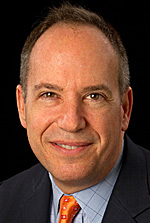A peer mentoring program and increased academic support services are among the commitments Lawrence University has pledged to help more low-income students attend and complete college.

Lawrence joined a select number of colleges and universities in the country publicly pledging plans to assist low-income students as part of a higher education summit hosted Thursday (1/16) by President Barack Obama and First Lady Michelle Obama at the White House.
The administration released the promises — financial or otherwise — of 100 institutions and 40 organizations aimed at assisting more low-income students attend college.
Lawrence and UW-Madison were the only Wisconsin institutions included in the White House-issued report “Commitments to Action on College Opportunity.”
“Affordability and access to a quality college education are Lawrence’s top priorities,” said President Mark Burstein. “Our plans address families’ financial burden and provide resources to assure a successful experience through graduation.”
Lawrence’s current efforts include providing need-based financial aid to about two-thirds of its students annually. Twenty-two percent of Lawrence students have extremely high financial need and qualify for federal Pell Grants. The college also enrolls a substantial number of first-generation students. Typically 10 to 15 percent of each class of degree-seeking students do not have parents who attended college.
In 2006, Lawrence was at the forefront of colleges nationally to implement test-optional admissions, helping to level the admissions playing field for low-income students who cannot afford expensive test-preparation services.
Among the additional steps Lawrence is pledging include:
• Enhanced current partnerships with community-based organizations (CBOs), including College Possible, College Horizons, the Posse Foundation and several others throughout the Chicago area to expand enrollment of students well matched for Lawrence. The expanded partnerships are expected to more than double the number of students from CBOs matriculating at Lawrence, beginning in fall of 2015.
• Increased academic support services, including the addition of new staff positions, to provide greater individualized assistance to help students overcome obstacles and stay on a path to graduation.
• Creation and implementation of a summer bridge program focused on equipping at-risk students with the skills and resources needed for successful transitions into and throughout their college experience.
• Greater emphasis on a peer mentoring program to help first-year students navigate academic and personal challenges, build habits for success and learn to thrive at Lawrence.
• Implementation of a new retention management system that will provide better early warning of students who may be struggling and then more effectively delivering services that support student success from enrollment to graduation.
• Enhanced training for faculty advisors to equip them with evidence-based strategies for supporting the success of high-need students.
“Taken together, we believe these initiatives will address White House and Lawrence goals to provide greater access to qualified students who might otherwise find a Lawrence education beyond their reach,” said Burstein.
About Lawrence University
Founded in 1847, Lawrence University uniquely integrates a college of liberal arts and sciences with a nationally recognized conservatory of music, both devoted exclusively to undergraduate education. It was selected for inclusion in the Fiske Guide to Colleges 2014 and the book “Colleges That Change Lives: 40 Schools That Will Change the Way You Think About College.” Individualized learning, the development of multiple interests and community engagement are central to the Lawrence experience. Lawrence draws its 1,500 students from nearly every state and more than 50 countries.